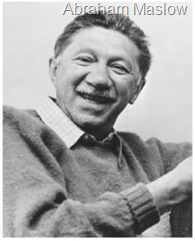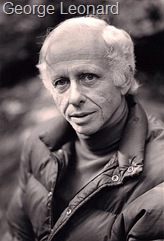There are sins common to all men that lies beyond the boundaries of right and wrong, or black and white. The boundaries defined by ethics or religion or moral conscience or a similar framework of judgment. While right/wrong, good/bad are a matter of perspective and insight, there are sins that are common to men from all walks of life. Morality as defined by this new framework seems more of a holistic understanding as opposed to the one we currently seem to hold.
In a speech given at Hyderabad for a forum discussion on Urban Development ideas, MP Dr. Jayaprakash Narayan spoke of two sins that plagued the country. These sins, according to him, were those of "Unfulfilled potential" and "Avoidable suffering". While it seems like something a personality development guru would have propounded, it is surprising that a politician (and a good one at that!) decides to talk about these as two critical sins. The root or the germinator of this study was this idea from Dr. JP.
Let us step away from the context of a country or a movement to that of our own selves. As we go along, we can try and understand why the focus on a movement can be removed for now, and instead, an individual focus may be mandated. Let us try and isolate these two sins to come to a broader understanding of the current human psyche. For the purpose of better focus (and easier reading!), this article will be divided into 2 parts. The first part will cover human potential and its implications today. The second part will cover unnecessary suffering and learning from that aspect.
Unfulfilled potential
Potential : As an individual or as a group?
The foremost and primary movement recognizing the need for humans to achieve their potential was the Human Potential Movement (HPM). Many names drove this movement, the most prominent being Abraham Maslow, Aldous Huxley and George Leonard (who coined the term HPM). The movement took ground on the premise that through the development of a human’s true potential, she would experience exceptional quality of life through happiness, contentment and creativity. And that those who begin to fulfill their dormant potential would direct their actions towards helping others achieve their potential, and thereby bring about positive social change. Idealistic, eh?


Well, the concept itself was not new. We have all studied/heard of Maslow’s Hierarchy of needs at some point in time. The need at the peak of the pyramid, defined as ‘Self actualization’, caters to the same idea. While HPM met some success at the beginning, and still has some followers, it fell into the trap that most movements fall into.
Movements are like individuals. Like a human is governed by his brain and its thoughts, a movement is governed by the few luminaries of the ‘tribe’ who propounded it. As it grows though, the ‘human’ effects of this luminary brain happen to hinder the movement more than it helps. Adherence to the HPM and its requirements led to hindrance in authenticity and encouraged groupthink. Instead of letting people decide what potential meant to them and how they could go about it, the attempt to monetize and commercialize it led to the creation of a rigid framework for achieving potential, which then became ironical, considering what it was started for!
There were and will be more movements that will focus on the human potential in some form or the other. However, like most movements, they are limited in terms of their applicability and relate-ability to a particular generation. There are numerous examples of highly successful movements of their time which did not do much for even the generation succeeding the one it worked in. So let us forget the social/planetary empowerment promised by movements and focus instead on individual empowerment, that has and will be the onus of the individual himself.
Understanding individual potential
In the Humanist Manifesto published in 1933, signatories agreed to the statement that evinced a strong belief in human potential-
“Man is at last becoming aware that he alone is responsible for the realization of the world
of his dreams, that he has within himself the power for its achievement”
While this statement by itself does not say much about potential, it drives at the heart of what potential means to an individual. Potential as defined in the words of Maslow, “What a man can be, he must be”, i.e. to become more and more what one is, to become everything that one is capable of becoming.
This concept isn’t new either. The Renaissance movement was started with the intention to honor learning and to honor men who were striving to achieve their full potential. These people were (and still are) called ‘Polymaths’. Leonardo da Vinci was from this era and is undisputedly, one of the greatest polymaths to ever walk the earth. Michelangelo, Francis Bacon were others. Benjamin Franklin was another polymath – inventor, statesman, businessman, philosopher, and much more. Polymaths are not always geniuses though. Nor is it the other way around. Isaac Newton, Albert Einstein and Marie Curie were considered geniuses, but their exploits and knowledge were confined to some very specific fields. They were widely acknowledged as geniuses but may not be considered polymaths.
Polymaths have larger subject areas and a deeper understanding in these. Its not a ‘jack-of-all-trades’ proposition, they are genuinely good in the fields that they pursue. You may have come across people like this in regular life as well – people who seem who be good at almost everything they do and seem to have answers to so many questions tucked away somewhere in their brains.
Polymaths are not restricted to arts, science, philosophy or other such fields. Consider Max Woosnam, a sporting polymath, considered “the Greatest British sportsman”. Max Woosnam toured Brazil with the famous Corinthians football team in 1913 and later captained Manchester City and the England national football team. He won an Olympic gold medal for tennis, played golf off scratch, scored a century at Lord's, and made a 147 break on the snooker table. He was also one of the 300,000 men to enlist in the first month of the First World War, fought with distinction, and endured the horrors of Gallipoli. He lived up to 72 years, and not long after another decent all-rounder, the journalist, soldier, painter, writer, orator, politician and statesman Winston Churchill.
All historic you say? Need a more recent example? Then turn your attention to Nathan Myhrvold. Nathan was CTO at Microsoft, and is co-founder of the venture capitalist firm ‘Intellectual Ventures’. Apart from being a holder of over a dozen patents, he is an award winning nature and wildlife photographer, a paleontology researcher and academic, a master French chef, author, and a social advocate. Even in pop culture, the concept of a polymath stands out. Case in point: Gregory House of House M.D, Gil Grisson of CSI and Fox Mulder of X-Files. How can one forget that eccentric polymath Sherlock Holmes? So as you might see now, the concept of a polymath is not something historic and not something impossible today. There are people who go about achieving their full potential or at least striving to achieve their full potential, even today.
What is the need for fulfilling one's potential?
Quite simply, we have to go back to Maslow. As much as there is critique for his pyramid of needs, it still remains elementarily what man strives for. The error made today is to club financial success with achieving one’s full potential, while this is far from the truth. Striving to achieve one’s full potential has very little to do with financial success. In fact, it could only be the by-products of one’s quest for achievement.
There are detriments though. The extent and variance of their learning and potential, makes polymaths seem eccentric at times and normal at other times. Forming social relationships and catering to social norms fall by the wayside in favor of furthering one's knowledge. The limits that we place on learning are usually self-imposed. While it may not be possible to be an equivalent of Ph.D in 4-5 very different subjects, the aim must be to learn as much as possible, which is what the famous polymaths have done over the years.
In our world, there is an increasing effort to specialize. Even in a regular profession (unlike doctors, where specialization is necessary), people seek to specialize in one or the other aspect, while leaving out a major chunk of learning. Seek to learn, seek to learn more and seek to learn more varied – this could be the mantra to the path of achieving one’s potential.
To conclude, I would like you to ponder over a famous quote from Robert Heinlein till the next post -
“A human being should be able to change a diaper, plan an invasion, butcher a hog, conn a ship, design a building, write a sonnet, balance accounts, build a wall, set a bone, comfort the dying, take orders, give orders, cooperate, act alone, solve equations, analyze a new problem, pitch manure, program a computer, cook a tasty meal, fight efficiently, die gallantly. Specialization is for insects.”
…


